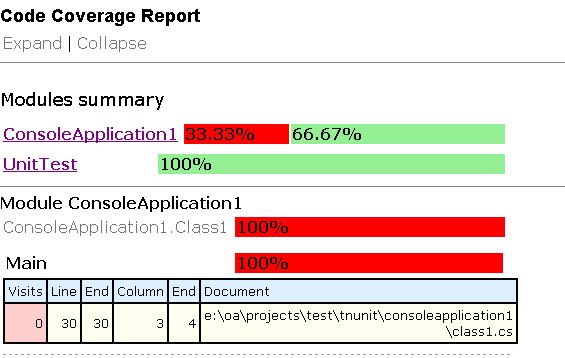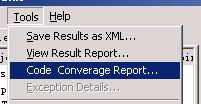- 利用LangChain的StackExchange组件实现智能问答系统
nseejrukjhad
langchainmicrosoft数据库python
利用LangChain的StackExchange组件实现智能问答系统引言在当今的软件开发世界中,StackOverflow已经成为程序员解决问题的首选平台之一。而LangChain作为一个强大的AI应用开发框架,提供了StackExchange组件,使我们能够轻松地将StackOverflow的海量知识库集成到我们的应用中。本文将详细介绍如何使用LangChain的StackExchange组件
- Java 重写(Override)与重载(Overload)
叨唧唧的
Java重写(Override)与重载(Overload)重写(Override)重写是子类对父类的允许访问的方法的实现过程进行重新编写,返回值和形参都不能改变。即外壳不变,核心重写!重写的好处在于子类可以根据需要,定义特定于自己的行为。也就是说子类能够根据需要实现父类的方法。重写方法不能抛出新的检查异常或者比被重写方法申明更加宽泛的异常。例如:父类的一个方法申明了一个检查异常IOExceptio
- 怎么做才能真正限制塑料袋的使用?
BalNews
Environmentalpollutionisalwaysamajorlivelihoodissue.Morethanadecadeago,ourgovernmenthadintroducedapolicyaboutrestrictionsontheuseofplasticbags,wecallitrestrictionsontheuseofplasticbags.Butmorethan10ye
- [Unity]在场景中随机生成不同位置且不重叠的物体
Bartender_Jill
Graphics图形学笔记unity游戏引擎动画
1.前言最近任务需要用到Unity在场景中随机生成物体,且这些物体不能重叠,简单记录一下。参考资料:Howtoensurethatspawnedtargetsdonotoverlap?2.结果与代码结果如下所示:代码如下所示:usingSystem.Collections.Generic;usingUnityEngine;namespaceAssets.Scripts{publicclassNew
- GenVisR 基因组数据可视化实战(三)
11的雾
3.genCov画每个突变位点附件的coverage,跟igv有点相似。这个操作起来很复杂,但是图还是挺有用的。可以考虑。由于我的referencegenomebuild是hg38BiocManager::install(c("TxDb.Hsapiens.UCSC.hg38.knownGene","BSgenome.Hsapiens.UCSC.hg38"))library(TxDb.Hsapien
- 斟一小组鸡血视频
和自己一起成长
http://m.v.qq.com/play/play.html?coverid=&vid=c0518henl2a&ptag=2_6.0.0.14297_copy有一种努力叫做靠自己http://m.v.qq.com/play/play.html?coverid=&vid=i0547o426g4&ptag=2_6.0.0.14297_copy世界最励志短片https://v.qq.com/x/pa
- 98_es生产集群部署之针对集群重启时的shard恢复耗时过长问题定制的重要参数
小山居
98_es生产集群部署之针对集群重启时的shard恢复耗时过长问题定制的重要参数shardrecovery配置以及集群重启时的无意义shard重分配问题在集群重启的时候,有一些配置会影响shard恢复的过程。首先,我们需要理解默认配置下,shard恢复过程会发生什么事情。如果我们有10个node,每个node都有一个shard,可能是primaryshard或者replicashard,你有一个i
- 8
冰鈊夢
transition动画transform.box{width:200px;height:200px;background-color:gold;margin:50pxauto0;transition:all1sease;}.box:hover{transform:translate(50px,50px);}.box2{width:200px;height:200px;background-col
- 自定义分区
我的K8409
Hadoophdfshadoop大数据
通过简单例子了解partition分区类的重写方法分区是在MR的过程中进行的,属于Shuffle阶段但是在Job端不要忘记进行调用:job.setPartitionerClass(xxx.class)按照年龄分区:classAgePartitionerextendsPartitioner{@OverridepublicintgetPartition(MyComparablekey,NullWrit
- Istio pilot-discovery服务发现源码解析(1.13版本)
xidianjiapei001
#Istioistio云原生服务发现
Istiopilot-discovery服务发现介绍工作机制初始化初始化Config控制器初始化Service控制器controller初始化NamespaceServiceNodePodPilotDiscovery各组件启动流程DiscoveryServer接收Envoy的gRPC连接请求流程Config变化后向Envoy推送更新的流程总结参考介绍IstioPilot的代码分为Pilot-Dis
- css设置当字数超过限制后以省略号(...)显示
周bro
css前端vuecss3html经验分享
1、文字超出一行,省略超出部分,显示’…’用text-overflow:ellipsis属性来,当然还需要加宽度width属来兼容部分浏览。overflow:hidden;text-overflow:ellipsis;white-space:nowrap;2、多行文本溢出显示省略号display:-webkit-box;-webkit-box-orient:vertical;-webkit-lin
- 前端CSS面试常见题
剑亦未配妥
前端面试前端css面试
边界塌陷盒模型有两种:W3C盒模型和IE盒模型,区别在于宽度是否包含边框定义:同时给兄弟/父子盒模型设置上下边距,理论上边距值是两者之和,实际上不是注意:浮动和定位不会产生边界塌陷;只有块级元素垂直方向才会产生margin合并margin计算方案margin同为正负:取绝对值大的值一正一负:求和父子元素边界塌陷解决父元素可以通过调整padding处理;设置overflowhidden,触发BFC子
- 单线程执行器(`SingleThreadedExecutor`)来处理节点的任务
课堂随想
moveit2机器人
intmain(intargc,char**argv){rclcpp::init(argc,argv);rclcpp::NodeOptionsnode_options;node_options.automatically_declare_parameters_from_overrides(true);automove_group_node=rclcpp::Node::make_shared("mo
- 基于高通主板的ARM架构服务器
问就是想睡觉
arm开发服务器运维
一、ARM架构服务器的崛起(一)市场需求推动消费市场寒冬,全球消费电子需求下行,服务器成半导体核心动力之一。Arm加速布局服务器领域,如9月推出NeoverseV2。长久以来,x86架构主导服务器市场,现面临挑战。Arm2008年入服务器领域,虽因性能与生态问题未大突破,但近几年重新冲刺。(二)技术创新引领Arm的Neoverse平台不断发展。2018年推出参考架构,2020年衍生出E、N、V系列
- 安卓玩机搞机技巧综合资源----安卓机型使用ADB指令 无需root 卸载 禁用当前机型各种软件app
安卓机器
安卓玩机搞机技巧综合资源android
在前面的博文我有分享过如何使用adb来卸载禁用有些系统自带的软件。今天将详细的步骤来讲解。在操作前需要注意。不要禁用或者卸载有些系统应用如应用商店和系统更新等。否则系统严重会导致不开机。在做未有把握操作之前,最好先备份数据。如果遇到卡logo问题,极端情况下可能要在Recovery界面清除数据才能启动系统或者线刷来救砖。前期工作1----下载adb环境工具{https://dl.google.co
- 车载以太网之SOME/IP
IT_码农
车载以太网车载以太网SOME/IP
整体介绍SOME/IP(全称为:Scalableservice-OrientedMiddlewarEoverIP),是运行在车载以太网协议栈基础之上的中间件,或者也可以称为应用层软件。发展历程AUTOSAR4.0-完成宝马SOME/IP消息的初步集成;AUTOSAR4.1-支持SOME/IP-SD及其发布/订阅功能;AUTOSAR4.2-添加transformer用于序列化以及其他相关优化;AUT
- overleaf如何下载论文的pdf
风也温柔☆
overleafpdfoverleaf
用overleaf写完英文论文后,要将论文保存为PDF格式点击图片中的下载按钮然后选择一个路径保存论文的PDF格式即可。
- Oracle(125)如何执行不完全恢复?
辞暮尔尔-烟火年年
Oracleoracle数据库
不完全恢复(IncompleteRecovery)是指将Oracle数据库恢复到一个特定时间点、SCN(系统变更号)或取消点,而不是恢复到最近的备份后的最新状态。以下是详细的步骤和代码示例,展示如何执行不完全恢复。准备工作备份控制文件:确保你有控制文件的备份。备份数据文件:确保你有数据文件的备份。备份归档日志:确保你有最新的归档日志。不完全恢复的基本步骤关闭数据库:确保数据库处于关闭状态。启动数据
- netty-简易聊天
2401_84046645
程序员java开发语言
publicvoidsend(Stringtext){channel.writeAndFlush(Unpooled.copiedBuffer(text.getBytes()));}publicvoidcloseConnect(){send(“bye”);channel.close();}}classMyHandlerextendsChannelInboundHandlerAdapter{@Over
- CSS中如何实现鼠标悬停效果?
神明木佑
css前端
在CSS中,您可以使用:hover伪类来实现鼠标悬停效果。:hover伪类会在用户将鼠标悬停在选择器所匹配的元素上时应用指定的样式。下面是一个简单的例子,展示了如何在鼠标悬停时改变文本颜色和背景颜色:MouseHoverExample.hover-effect{color:black;background-color:white;padding:10px;text-align:center;}.h
- Android-悬浮窗功能的实现(附Java、KT实现源码)(1)
egrhef
程序员androidjava开发语言
//获取服务的操作对象valbinder=serviceasFloatWinfowServices.MyBinderbinder.service}overridefunonServiceDisconnected(name:ComponentName){}}overridefunonActivityResult(requestCode:Int,resultCode:Int,data:Intent){
- PCIe进阶之Gen3 Physical Layer Receive Logic(一)
芯芯之火,可以燎原
PCIe进阶硬件工程信息与通信
1文章概述本篇文章是接着前面两篇文章进一步研究Gen3PhysicalLayerReceiveLogic的实现,具体包含DifferentialReceiver,CDR(ClockandDataRecovery)和ReceiverClockCompensationLogic三个部分的介绍和解析。1.1DifferentialReceiverGen3的DifferentialReceiver逻辑和之
- Mac清倒废纸篓提示“voicetrigger“在使用中
ReddingtonLin
MacMac
删除Mac下的user以后,清倒废纸篓,提示“voicetrigger”在使用中。解决办法:重启Mac,开机的时候按住Cmd+R进入Recovery模式选择语言-简体中文从工具菜单中启动终端,输入密码。输入csrutildisable命令,即可关闭SIP服务。重启电脑。(正常重启即可,不用按住Cmd+R进入Recovery模式)再尝试清空废纸篓。如果还不行,就尝试用命令行删除。处理好后,再开启SI
- Android界面特效全汇总
小飞鹤
Android开发详解android
(一)Activity页面切换的效果Android2.0之后有了overridePendingTransition(),其中里面两个参数,一个是前一个activity的退出两一个activity的进入,Java代码1.@OverridepublicvoidonCreate(BundlesavedInstanceState){2.super.onCreate(savedInstanceState);
- 压测服务器并使用 Grafana 进行可视化
豆瑞瑞
grafana
简介仓库代码GitCode-全球开发者的开源社区,开源代码托管平台参考Welcome!-TheApacheHTTPServerProjectGrafana|查询、可视化、警报观测平台https://prometheus.io/docs/introduction/overview/
- Mac上有哪些虚拟机软件?性能兼容性都怎么样该如何下载安装
Hot1422
macoswindows
Mac上常用的虚拟机软件大概有三个,一个是VMwareFusionVM虚拟机,一个是ParallelsDesktopPD虚拟机,还有一个是CrossOver其中PD与VM都是纯正的虚拟机软件,通过安装windows操作系统来运行windows软件,而CrossOver是无需安装操作系统的,但兼容性比较差,下面详细介绍一下:ParallelsDesktop(PD虚拟机)PD虚拟机对于RAM架构的Ma
- 一文说清GO环境变量-GO111MODULE、GOROOT、GOPATH、GOBIN、GOPRIVATE
kkmoreTech
golanggolang开发语言后端
文章目录Go的开发模式-GO111MODULE从GOPATH开发模式到gomodule开发模式Go程序安装路径-GOROOTGo工作区-存放第三方包代码GOPATHGo可执行程序-引用包路径GOBIN第三方私有包下载路径-GORIVATEGO环境变量的设置参考资料搭建环境:macOS(linux系统类似)goversion:1.16Go的开发模式-GO111MODULE介绍GO环境变量之前,必须先
- css3实现鼠标放到图标上自动切换图标
黄丫丫07
csscss3html
作业div{font-family:'icomoon';width:1217px;height:1217px;background:url(images/1.jpg)no-repeat00;transition:all.2s;}div:hover{background:url(images/1.jpg)no-repeat-1200px0;}
- el-dialog高度设置
夏之小星星
前端vue.jselementuicss
el-dialog高度设置::v-deep.el-dialog{height:78vh;overflow:auto;}
- Picture Butler-Instant Save
逍遥alan
Thisisaveryconvenientandpracticalsoftware.Userscanusethissoftwaretoclassifyphotos.Firsttheuserneedstocreateanalbum.Selectthealbumcoverandenteraname.Clickonthealbumtoaddyourphoto.Simpleoperationandsimp
- java的(PO,VO,TO,BO,DAO,POJO)
Cb123456
VOTOBOPOJODAO
转:
http://www.cnblogs.com/yxnchinahlj/archive/2012/02/24/2366110.html
-------------------------------------------------------------------
O/R Mapping 是 Object Relational Mapping(对象关系映
- spring ioc原理(看完后大家可以自己写一个spring)
aijuans
spring
最近,买了本Spring入门书:spring In Action 。大致浏览了下感觉还不错。就是入门了点。Manning的书还是不错的,我虽然不像哪些只看Manning书的人那样专注于Manning,但怀着崇敬 的心情和激情通览了一遍。又一次接受了IOC 、DI、AOP等Spring核心概念。 先就IOC和DI谈一点我的看法。IO
- MyEclipse 2014中Customize Persperctive设置无效的解决方法
Kai_Ge
MyEclipse2014
高高兴兴下载个MyEclipse2014,发现工具条上多了个手机开发的按钮,心生不爽就想弄掉他!
结果发现Customize Persperctive失效!!
有说更新下就好了,可是国内Myeclipse访问不了,何谈更新...
so~这里提供了更新后的一下jar包,给大家使用!
1、将9个jar复制到myeclipse安装目录\plugins中
2、删除和这9个jar同包名但是版本号较
- SpringMvc上传
120153216
springMVC
@RequestMapping(value = WebUrlConstant.UPLOADFILE)
@ResponseBody
public Map<String, Object> uploadFile(HttpServletRequest request,HttpServletResponse httpresponse) {
try {
//
- Javascript----HTML DOM 事件
何必如此
JavaScripthtmlWeb
HTML DOM 事件允许Javascript在HTML文档元素中注册不同事件处理程序。
事件通常与函数结合使用,函数不会在事件发生前被执行!
注:DOM: 指明使用的 DOM 属性级别。
1.鼠标事件
属性
- 动态绑定和删除onclick事件
357029540
JavaScriptjquery
因为对JQUERY和JS的动态绑定事件的不熟悉,今天花了好久的时间才把动态绑定和删除onclick事件搞定!现在分享下我的过程。
在我的查询页面,我将我的onclick事件绑定到了tr标签上同时传入当前行(this值)参数,这样可以在点击行上的任意地方时可以选中checkbox,但是在我的某一列上也有一个onclick事件是用于下载附件的,当
- HttpClient|HttpClient请求详解
7454103
apache应用服务器网络协议网络应用Security
HttpClient 是 Apache Jakarta Common 下的子项目,可以用来提供高效的、最新的、功能丰富的支持 HTTP 协议的客户端编程工具包,并且它支持 HTTP 协议最新的版本和建议。本文首先介绍 HTTPClient,然后根据作者实际工作经验给出了一些常见问题的解决方法。HTTP 协议可能是现在 Internet 上使用得最多、最重要的协议了,越来越多的 Java 应用程序需
- 递归 逐层统计树形结构数据
darkranger
数据结构
将集合递归获取树形结构:
/**
*
* 递归获取数据
* @param alist:所有分类
* @param subjname:对应统计的项目名称
* @param pk:对应项目主键
* @param reportList: 最后统计的结果集
* @param count:项目级别
*/
public void getReportVO(Arr
- 访问WEB-INF下使用frameset标签页面出错的原因
aijuans
struts2
<frameset rows="61,*,24" cols="*" framespacing="0" frameborder="no" border="0">
- MAVEN常用命令
avords
Maven库:
http://repo2.maven.org/maven2/
Maven依赖查询:
http://mvnrepository.com/
Maven常用命令: 1. 创建Maven的普通java项目: mvn archetype:create -DgroupId=packageName
- PHP如果自带一个小型的web服务器就好了
houxinyou
apache应用服务器WebPHP脚本
最近单位用PHP做网站,感觉PHP挺好的,不过有一些地方不太习惯,比如,环境搭建。PHP本身就是一个网站后台脚本,但用PHP做程序时还要下载apache,配置起来也不太很方便,虽然有好多配置好的apache+php+mysq的环境,但用起来总是心里不太舒服,因为我要的只是一个开发环境,如果是真实的运行环境,下个apahe也无所谓,但只是一个开发环境,总有一种杀鸡用牛刀的感觉。如果php自己的程序中
- NoSQL数据库之Redis数据库管理(list类型)
bijian1013
redis数据库NoSQL
3.list类型及操作
List是一个链表结构,主要功能是push、pop、获取一个范围的所有值等等,操作key理解为链表的名字。Redis的list类型其实就是一个每个子元素都是string类型的双向链表。我们可以通过push、pop操作从链表的头部或者尾部添加删除元素,这样list既可以作为栈,又可以作为队列。
&nbs
- 谁在用Hadoop?
bingyingao
hadoop数据挖掘公司应用场景
Hadoop技术的应用已经十分广泛了,而我是最近才开始对它有所了解,它在大数据领域的出色表现也让我产生了兴趣。浏览了他的官网,其中有一个页面专门介绍目前世界上有哪些公司在用Hadoop,这些公司涵盖各行各业,不乏一些大公司如alibaba,ebay,amazon,google,facebook,adobe等,主要用于日志分析、数据挖掘、机器学习、构建索引、业务报表等场景,这更加激发了学习它的热情。
- 【Spark七十六】Spark计算结果存到MySQL
bit1129
mysql
package spark.examples.db
import java.sql.{PreparedStatement, Connection, DriverManager}
import com.mysql.jdbc.Driver
import org.apache.spark.{SparkContext, SparkConf}
object SparkMySQLInteg
- Scala: JVM上的函数编程
bookjovi
scalaerlanghaskell
说Scala是JVM上的函数编程一点也不为过,Scala把面向对象和函数型编程这两种主流编程范式结合了起来,对于熟悉各种编程范式的人而言Scala并没有带来太多革新的编程思想,scala主要的有点在于Java庞大的package优势,这样也就弥补了JVM平台上函数型编程的缺失,MS家.net上已经有了F#,JVM怎么能不跟上呢?
对本人而言
- jar打成exe
bro_feng
java jar exe
今天要把jar包打成exe,jsmooth和exe4j都用了。
遇见几个问题。记录一下。
两个软件都很好使,网上都有图片教程,都挺不错。
首先肯定是要用自己的jre的,不然不能通用,其次别忘了把需要的lib放到classPath中。
困扰我很久的一个问题是,我自己打包成功后,在一个同事的没有装jdk的电脑上运行,就是不行,报错jvm.dll为无效的windows映像,如截图
最后发现
- 读《研磨设计模式》-代码笔记-策略模式-Strategy
bylijinnan
java设计模式
声明: 本文只为方便我个人查阅和理解,详细的分析以及源代码请移步 原作者的博客http://chjavach.iteye.com/
/*
策略模式定义了一系列的算法,并将每一个算法封装起来,而且使它们还可以相互替换。策略模式让算法独立于使用它的客户而独立变化
简单理解:
1、将不同的策略提炼出一个共同接口。这是容易的,因为不同的策略,只是算法不同,需要传递的参数
- cmd命令值cvfM命令
chenyu19891124
cmd
cmd命令还真是强大啊。今天发现jar -cvfM aa.rar @aaalist 就这行命令可以根据aaalist取出相应的文件
例如:
在d:\workspace\prpall\test.java 有这样一个文件,现在想要将这个文件打成一个包。运行如下命令即可比如在d:\wor
- OpenJWeb(1.8) Java Web应用快速开发平台
comsci
java框架Web项目管理企业应用
OpenJWeb(1.8) Java Web应用快速开发平台的作者是我们技术联盟的成员,他最近推出了新版本的快速应用开发平台 OpenJWeb(1.8),我帮他做做宣传
OpenJWeb快速开发平台以快速开发为核心,整合先进的java 开源框架,本着自主开发+应用集成相结合的原则,旨在为政府、企事业单位、软件公司等平台用户提供一个架构透
- Python 报错:IndentationError: unexpected indent
daizj
pythontab空格缩进
IndentationError: unexpected indent 是缩进的问题,也有可能是tab和空格混用啦
Python开发者有意让违反了缩进规则的程序不能通过编译,以此来强制程序员养成良好的编程习惯。并且在Python语言里,缩进而非花括号或者某种关键字,被用于表示语句块的开始和退出。增加缩进表示语句块的开
- HttpClient 超时设置
dongwei_6688
httpclient
HttpClient中的超时设置包含两个部分:
1. 建立连接超时,是指在httpclient客户端和服务器端建立连接过程中允许的最大等待时间
2. 读取数据超时,是指在建立连接后,等待读取服务器端的响应数据时允许的最大等待时间
在HttpClient 4.x中如下设置:
HttpClient httpclient = new DefaultHttpC
- 小鱼与波浪
dcj3sjt126com
一条小鱼游出水面看蓝天,偶然间遇到了波浪。 小鱼便与波浪在海面上游戏,随着波浪上下起伏、汹涌前进。 小鱼在波浪里兴奋得大叫:“你每天都过着这么刺激的生活吗?简直太棒了。” 波浪说:“岂只每天过这样的生活,几乎每一刻都这么刺激!还有更刺激的,要有潮汐变化,或者狂风暴雨,那才是兴奋得心脏都会跳出来。” 小鱼说:“真希望我也能变成一个波浪,每天随着风雨、潮汐流动,不知道有多么好!” 很快,小鱼
- Error Code: 1175 You are using safe update mode and you tried to update a table
dcj3sjt126com
mysql
快速高效用:SET SQL_SAFE_UPDATES = 0;下面的就不要看了!
今日用MySQL Workbench进行数据库的管理更新时,执行一个更新的语句碰到以下错误提示:
Error Code: 1175
You are using safe update mode and you tried to update a table without a WHERE that
- 枚举类型详细介绍及方法定义
gaomysion
enumjavaee
转发
http://developer.51cto.com/art/201107/275031.htm
枚举其实就是一种类型,跟int, char 这种差不多,就是定义变量时限制输入的,你只能够赋enum里面规定的值。建议大家可以看看,这两篇文章,《java枚举类型入门》和《C++的中的结构体和枚举》,供大家参考。
枚举类型是JDK5.0的新特征。Sun引进了一个全新的关键字enum
- Merge Sorted Array
hcx2013
array
Given two sorted integer arrays nums1 and nums2, merge nums2 into nums1 as one sorted array.
Note:You may assume that nums1 has enough space (size that is
- Expression Language 3.0新特性
jinnianshilongnian
el 3.0
Expression Language 3.0表达式语言规范最终版从2013-4-29发布到现在已经非常久的时间了;目前如Tomcat 8、Jetty 9、GlasshFish 4已经支持EL 3.0。新特性包括:如字符串拼接操作符、赋值、分号操作符、对象方法调用、Lambda表达式、静态字段/方法调用、构造器调用、Java8集合操作。目前Glassfish 4/Jetty实现最好,对大多数新特性
- 超越算法来看待个性化推荐
liyonghui160com
超越算法来看待个性化推荐
一提到个性化推荐,大家一般会想到协同过滤、文本相似等推荐算法,或是更高阶的模型推荐算法,百度的张栋说过,推荐40%取决于UI、30%取决于数据、20%取决于背景知识,虽然本人不是很认同这种比例,但推荐系统中,推荐算法起的作用起的作用是非常有限的。
就像任何
- 写给Javascript初学者的小小建议
pda158
JavaScript
一般初学JavaScript的时候最头痛的就是浏览器兼容问题。在Firefox下面好好的代码放到IE就不能显示了,又或者是在IE能正常显示的代码在firefox又报错了。 如果你正初学JavaScript并有着一样的处境的话建议你:初学JavaScript的时候无视DOM和BOM的兼容性,将更多的时间花在 了解语言本身(ECMAScript)。只在特定浏览器编写代码(Chrome/Fi
- Java 枚举
ShihLei
javaenum枚举
注:文章内容大量借鉴使用网上的资料,可惜没有记录参考地址,只能再传对作者说声抱歉并表示感谢!
一 基础 1)语法
枚举类型只能有私有构造器(这样做可以保证客户代码没有办法新建一个enum的实例)
枚举实例必须最先定义
2)特性
&nb
- Java SE 6 HotSpot虚拟机的垃圾回收机制
uuhorse
javaHotSpotGC垃圾回收VM
官方资料,关于Java SE 6 HotSpot虚拟机的garbage Collection,非常全,英文。
http://www.oracle.com/technetwork/java/javase/gc-tuning-6-140523.html
Java SE 6 HotSpot[tm] Virtual Machine Garbage Collection Tuning
&
 ProfilerSettings ps
=
new
ProfilerSettings();
ProfilerSettings ps
=
new
ProfilerSettings();
 ps.CommandLineExe
=
"
nunit-console.exe
"
;
ps.CommandLineExe
=
"
nunit-console.exe
"
;
 ps.CommandLineArgs
=
this
._testLoader.TestFileName;
ps.CommandLineArgs
=
this
._testLoader.TestFileName;
 ps.CoverageFile
=
Path.Combine(
new
FileInfo(
this
._testLoader.TestFileName).Directory.FullName,
"
coverage.xml
"
);
ps.CoverageFile
=
Path.Combine(
new
FileInfo(
this
._testLoader.TestFileName).Directory.FullName,
"
coverage.xml
"
);
 ProfilerDriver driver1
=
new
ProfilerDriver(ps);
ProfilerDriver driver1
=
new
ProfilerDriver(ps);
 driver1.Start();
driver1.Start();
 driver1.WaitForExit();
driver1.WaitForExit();
 System.Diagnostics.Process.Start(ps.CoverageFile);
System.Diagnostics.Process.Start(ps.CoverageFile);

 public
void
Start()
public
void
Start()


 {
{
 ProcessStartInfo info1 = new ProcessStartInfo(this._ps.CommandLineExe, this._ps.CommandLineArgs);
ProcessStartInfo info1 = new ProcessStartInfo(this._ps.CommandLineExe, this._ps.CommandLineArgs);
 info1.UseShellExecute = false;
info1.UseShellExecute = false;
 info1.ErrorDialog = false;
info1.ErrorDialog = false;
 info1.CreateNoWindow = true;
info1.CreateNoWindow = true;
 info1.RedirectStandardOutput = true;
info1.RedirectStandardOutput = true;
 info1.RedirectStandardInput = true;
info1.RedirectStandardInput = true;
 info1.RedirectStandardError = true;
info1.RedirectStandardError = true;
 if (this._ps.WorkingDirectory != null)
if (this._ps.WorkingDirectory != null)


 {
{
 info1.WorkingDirectory = this._ps.WorkingDirectory;
info1.WorkingDirectory = this._ps.WorkingDirectory;
 }
}
 this.SetEnvironment(info1.EnvironmentVariables);
this.SetEnvironment(info1.EnvironmentVariables);
 this._proc = Process.Start(info1);
this._proc = Process.Start(info1);
 }
}


 private
void
SetEnvironment(StringDictionary env)
private
void
SetEnvironment(StringDictionary env)


 {
{
 env["Cor_Enable_Profiling"] = "1";
env["Cor_Enable_Profiling"] = "1";
 env["Cor_Profiler"] = "CvrLib.CoverageProfiler";
env["Cor_Profiler"] = "CvrLib.CoverageProfiler";
 env["CoverageAssemblies"] = this._ps.Assemblies;
env["CoverageAssemblies"] = this._ps.Assemblies;
 env["CoverageLog"] = this._ps.LogFile;
env["CoverageLog"] = this._ps.LogFile;
 env["CoverageXml"] = this._ps.CoverageFile;
env["CoverageXml"] = this._ps.CoverageFile;
 if (this._ps.Debug)
if (this._ps.Debug)


 {
{
 env["CoverageDebug"] = "1";
env["CoverageDebug"] = "1";
 }
}
 if (this._ps.VerboseLog)
if (this._ps.VerboseLog)


 {
{
 env["CoverageVerbose"] = "1";
env["CoverageVerbose"] = "1";
 }
}
 if (this._ps.DisableSetIL)
if (this._ps.DisableSetIL)


 {
{
 env["CoverageDisableSetIL"] = "1";
env["CoverageDisableSetIL"] = "1";
 }
}
 if (this._ps.JITLog)
if (this._ps.JITLog)


 {
{
 env["CoverageLogJit"] = "1";
env["CoverageLogJit"] = "1";
 }
}
 if (this._ps.NoLog)
if (this._ps.NoLog)


 {
{
 env["CoverageNoLog"] = "1";
env["CoverageNoLog"] = "1";
 }
}
 }
}


